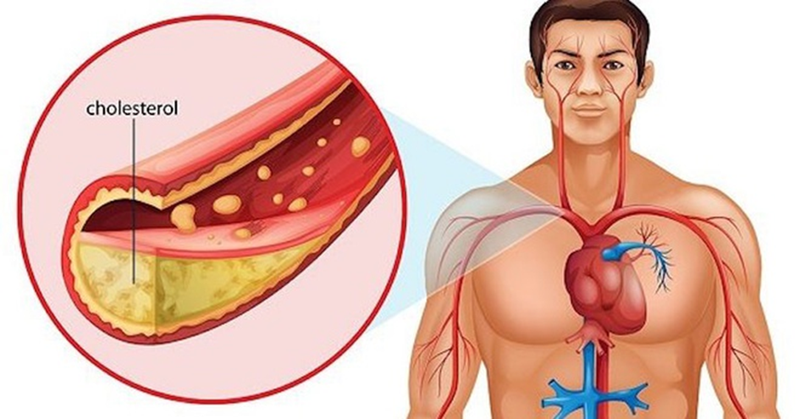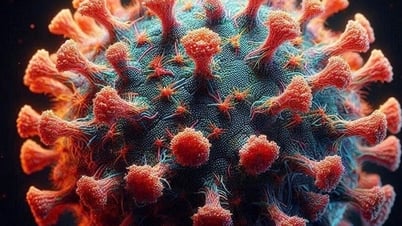Many patients in their 20s do not believe they have high cholesterol, says Dr. Suranjit Chatterjee, Indraprastha Apollo Hospital, New Delhi. This silent health problem is often overlooked because high cholesterol rarely shows noticeable symptoms until it is too late.
Most importantly, cholesterol buildup can start at a younger age, even in the teens, but patients do not feel any abnormalities until they reach their 20s. That is why so many young people report heart attacks caused by plaque, a result of high cholesterol in the blood.

The most worrying thing about high cholesterol in young people is its asymptomatic nature.
1. What cholesterol range is safe?
Cholesterol is a waxy substance made by the liver that is needed for the production of hormones, vitamin D, and bile salts, which play a role in digestion. It is transported in lipoproteins, high-density lipoprotein (HDL) and low-density lipoprotein (LDL). HDL is known as “good cholesterol” and should ideally be at 50 mg/dL or higher. LDL, or “bad cholesterol,” should be kept low in the body.
Specifically, LDL cholesterol should be below 100 mg/dL for people who are more susceptible to heart disease than other ethnic groups. An LDL of 130 to 159 mg/dL is classified as “borderline high,” 160 to 189 mg/dL is “high,” and 190 mg/dL or higher is considered “very high.”
2. What causes cholesterol to spike in young people?
According to Dr. Suranjit Chatterjee, this is related to lifestyle and dietary choices, starting with a childhood packet of potato chips. The popularity of processed foods and fast foods, which are high in saturated and trans fats, has skyrocketed in recent decades.
Unhealthy eating habits, combined with a sedentary lifestyle and lack of physical activity, create the perfect storm for cholesterol to build up in the body. As a result, the liver is unable to process the excess fat or excrete it.
Furthermore, the convenience of sugary drinks and ready-to-eat snacks has led to increased consumption of added sugars. This can contribute to high triglyceride levels and low HDL (good) cholesterol levels. This imbalance in cholesterol levels can significantly increase the risk of heart disease and other related health problems.
Having a family history or diabetes can also affect your numbers. A condition called diabetic dyslipidemia can increase both LDL (bad) cholesterol and decrease HDL (good) cholesterol.

Controlling cholesterol levels requires regular physical activity and maintaining a healthy weight.
3. Invisible Threat
One of the most worrying aspects of high cholesterol in young people is its symptomless nature. This leads to a false sense of security, allowing the condition to progress unchecked until serious complications arise.
High cholesterol can lead to a gradual buildup of plaque in the arteries, known as atherosclerosis. This narrowing of the arteries can restrict blood flow and increase the risk of heart attack, stroke, and other cardiovascular problems. The damage that LDL (bad cholesterol) does to the arteries is cumulative and irreversible.
4. How to detect and prevent high cholesterol early
Although high cholesterol can lead to heart disease, high cholesterol levels themselves do not cause any symptoms. That is why young people aged 20 and older should have their cholesterol checked every five years even if they look healthy, and every year if possible.
Additionally, many people mistakenly associate high cholesterol with obesity. Even thin people can have high cholesterol. By identifying high cholesterol early, making appropriate lifestyle changes, and, if necessary, getting medical intervention, you can reduce your risk of long-term complications.
Focus on eating a balanced diet rich in fruits, vegetables, whole grains, and lean proteins. Regular physical activity and maintaining a healthy weight are also important for controlling cholesterol levels. Additionally, quitting smoking and limiting alcohol consumption can significantly improve heart health.
If your levels are high enough to warrant taking cholesterol-lowering medications such as statins, lifestyle changes can improve their effectiveness.
Source


![[Photo] General Secretary To Lam receives Chief of the Central Office of the Lao People's Revolutionary Party](https://vphoto.vietnam.vn/thumb/1200x675/vietnam/resource/IMAGE/2025/5/30/140435f4b39d4599a3d17975dfb444c5)
![[Photo] National Conference "100 years of Vietnamese Revolutionary Press accompanying the glorious cause of the Party and the nation"](https://vphoto.vietnam.vn/thumb/1200x675/vietnam/resource/IMAGE/2025/5/30/1cf6cd5c8a934ebfa347028dcb08358c)











![[Video] Ho Chi Minh City: Number of COVID-19 cases increases rapidly, 2 deaths recorded](https://vphoto.vietnam.vn/thumb/402x226/vietnam/resource/IMAGE/2025/5/31/5fe289cf72774d918f23fe88bb1686ce)












![[Photo] Journalists moved to tears at the Memorial Service for the soldiers who died in Gac Ma](https://vphoto.vietnam.vn/thumb/1200x675/vietnam/resource/IMAGE/2025/5/30/9454613a55c54c16bf8c0efa51883456)


































































Comment (0)